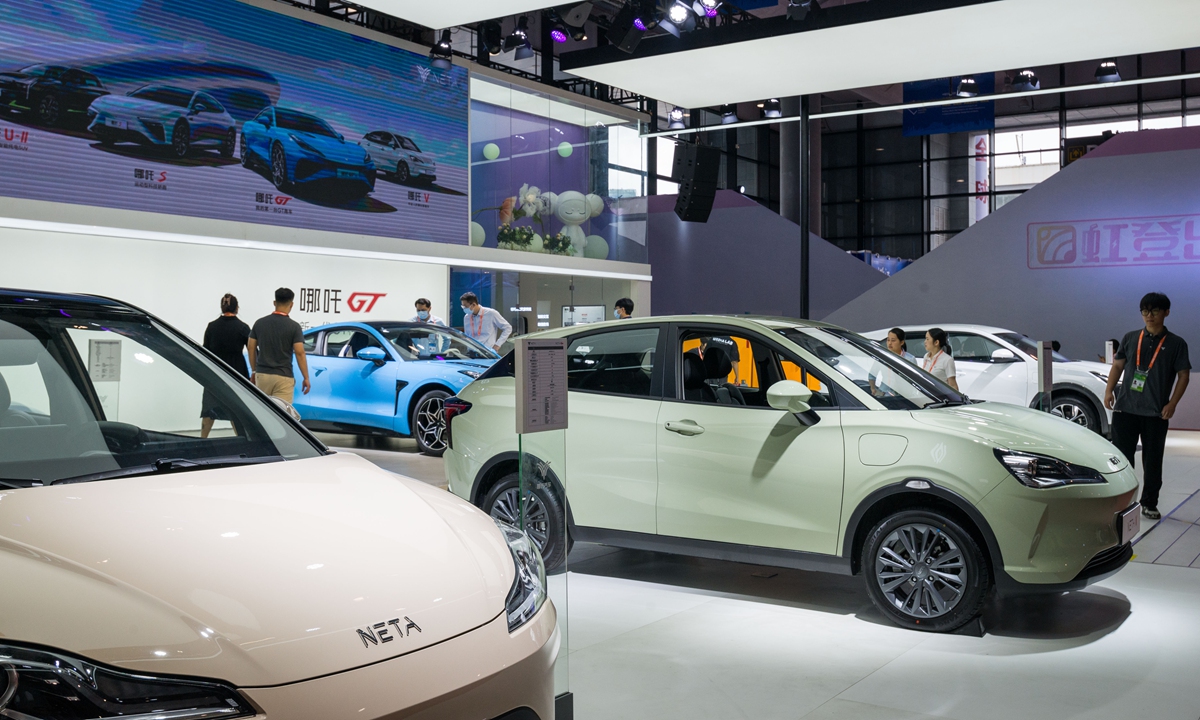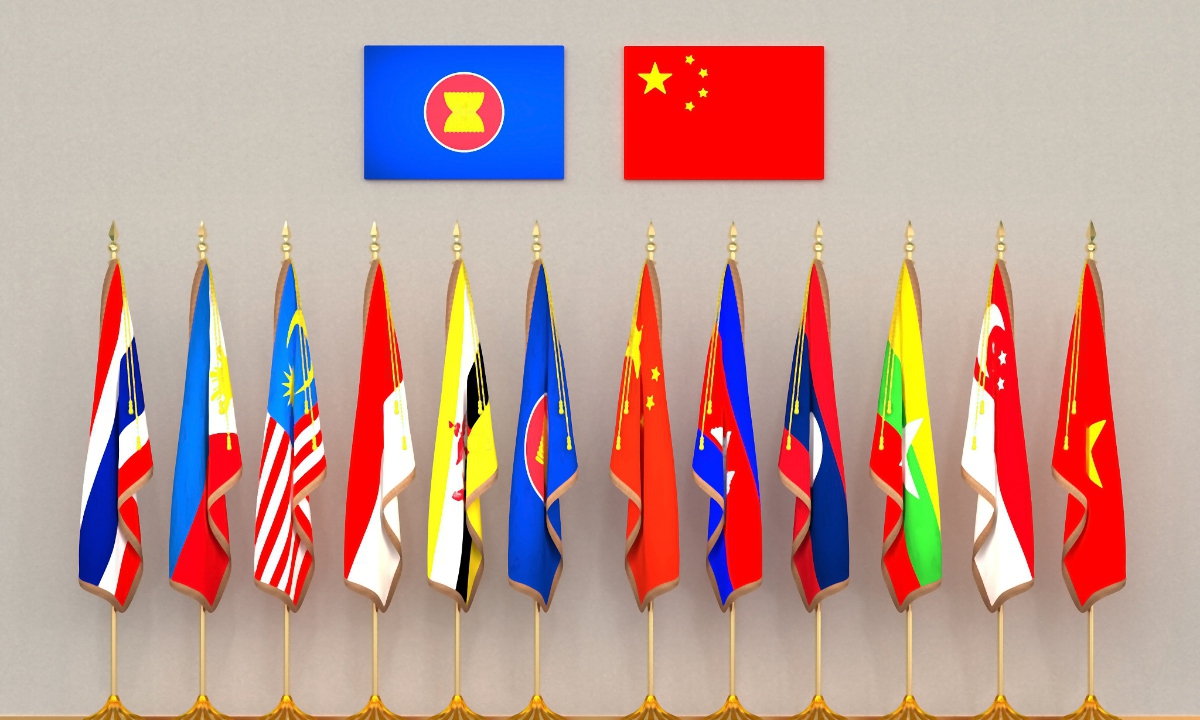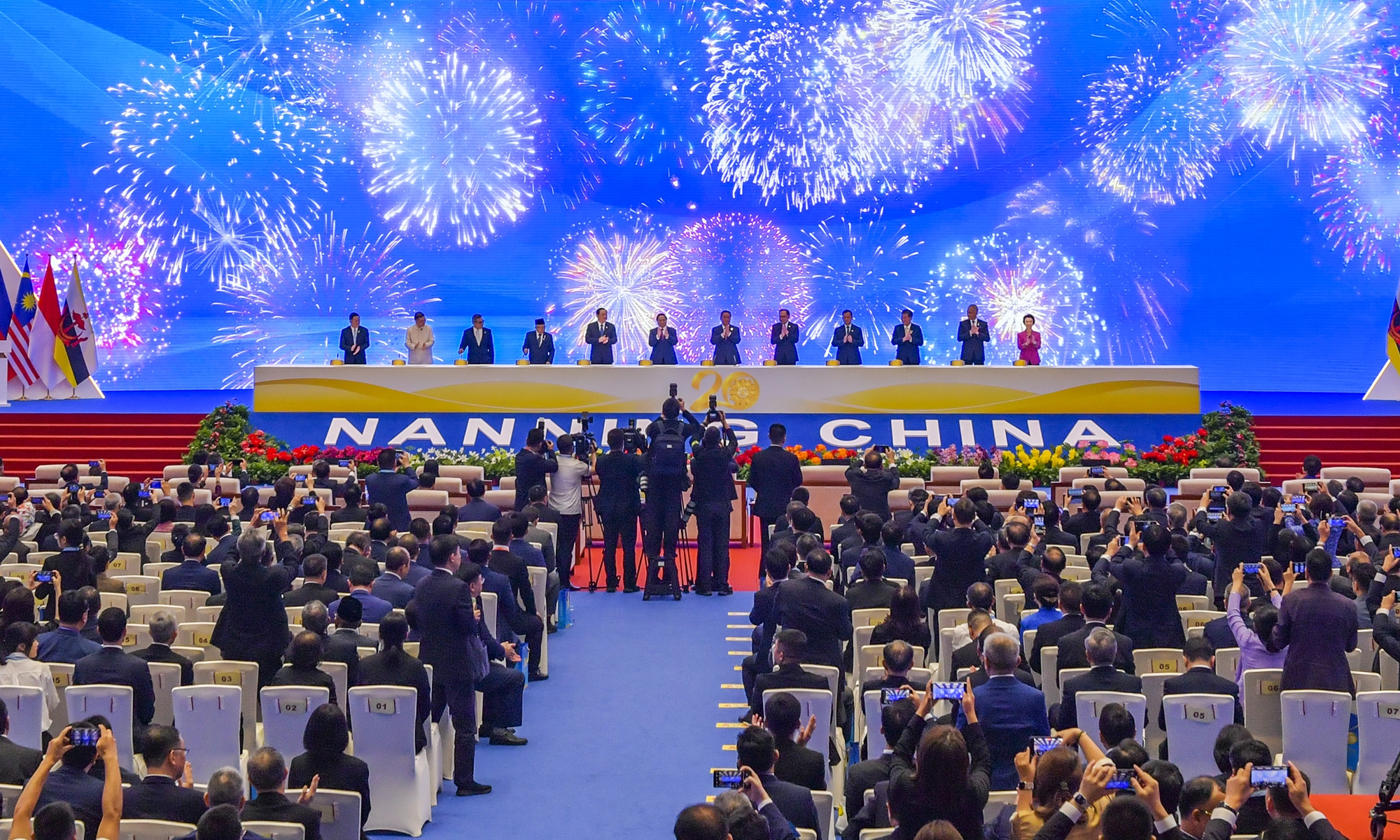China-ASEAN NEV industry cluster takes shape due to stronger ties, favorable policies
Carmakers have stronger presence in region amid closer ties, favorable policies

Visitors browse Chinese NEVs at the 20th China-ASEAN Expo on September 18, 2023. Photo: Chen Tao/GT
A vibrant display of new-energy products ranging from batteries to electric vehicles (EVs) at the ongoing 20th China-ASEAN Expo in Nanning, South China's Guangxi Zhuang Autonomous Region, serves as a prime example of deepening cooperation between China and ASEAN member countries in the emerging field.
The exhibition hall for new-energy products lies in a prominent location of the expo, drawing the attention of visitors and consumers who eagerly seek the opportunity to test-drive the impressive cars on display.
"Chinese NEVs developed unstoppable momentum in the ASEAN market over the past few years, and they are becoming extremely popular," a visitor from Thailand who gave his name as Nonglak told the Global Times at the expo site on Monday.
Chinese automakers dominated Southeast Asia's fast-growing electric vehicle market, selling three out of every four EVs in the first quarter, Reuters reported in July, citing research firm Counterpoint Research.
"It's well designed, easy to drive and also price competitive... that's incredible," Nonglak said.
Notably, Chinese EV makers BYD and Neta Auto are the two companies that occupied the biggest spaces in the exhibition.
On Monday, Neta announced that in the next one to two years, it plans to expand its presence comprehensively into the ASEAN region, achieving complete coverage across all ASEAN member countries.
Within approximately three years, we aim to achieve an annual delivery volume of more than 100,000 vehicles in the ASEAN region, a representative of the company told the Global Times at the site on Monday.
The ambitious plan comes just one year after Neta made its debut in Thailand in 2022.
Other Chinese brands have also been racing to expand in the emerging market. It's not only about exports of cars, but also about a forming of industries - with many of them announcing plans or expansions of car factories in the region.
For instance, BYD's wholly owned factory in Thailand is expected to commence operations in 2024. The right-hand-drive passenger vehicles this facility produces will be introduced to the domestic Thai market and will also serve neighboring ASEAN countries and other regions, the company said in a statement it sent to the Global Times on Monday.
Neta, Great Wall Motor (GWM) and SAIC have all set up factories in Thailand.
The carmaking industrial chain is expected to be forged at a faster pace with the support of governments in the region. During Chinese Premier Li Qiang's meetings with leaders of East Asia and ASEAN in early September, the first cooperation document on forming closer EV partnerships was signed, lifting bilateral cooperation in the sector to a new high.
China also expressed hopes for enhanced practical cooperation with all parties to sharpen the region's overall competitive edge in EVs, paving the way for ASEAN to become part of the global EV supply chain.
Officials, industry players and companies told the Global Times at the expo that preferential policies issued by ASEAN member countries as well as strong support from both China and ASEAN countries have contributed to the strong industry situation.
For example, the Thai government approved a budget of 3 billion baht ($84 million) for the 2022 fiscal year and 40 billion baht for fiscal years 2023 to 2025 to support the development of the EV industry.
Indonesia has provided corporate income tax breaks for investors in the EV industry and allocated funds in the budget to provide subsidies for buyers of EVs.
In the "new three items" - EVs, lithium batteries and solar panels - which have increasingly gained popularity in local markets, China and ASEAN have significant opportunities for collaboration, Tang Zhimin, dean of the International School of the Panyapiwat Institute of Management and director of the China-ASEAN Research Center, told the Global Times on the sidelines of the forum on Monday.
Tang noted that the China-proposed Belt and Road Initiative, which includes connectivity projects such as the Jakarta-Bandung high-speed railway and the China-Laos-Thailand Railway, will further enhance infrastructure connectivity as well as technology transfers, which can elevate local human resources and technological capabilities in the region.




